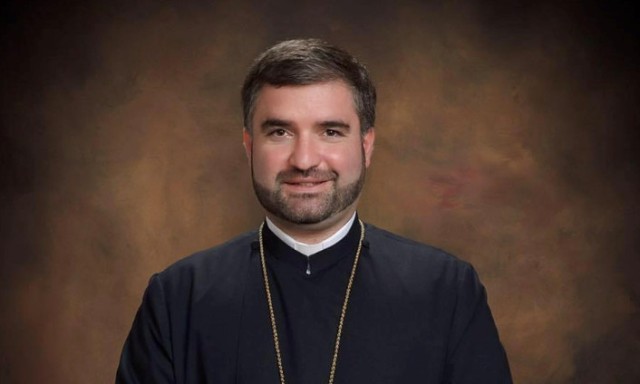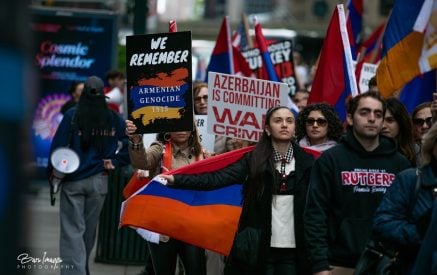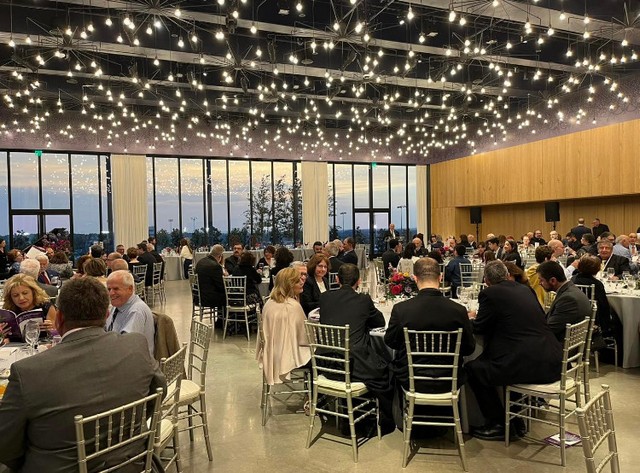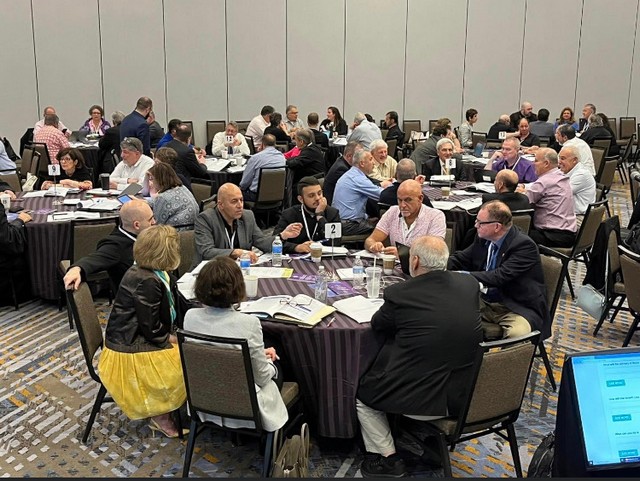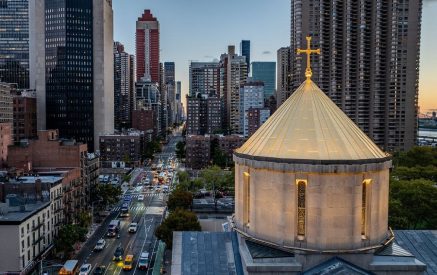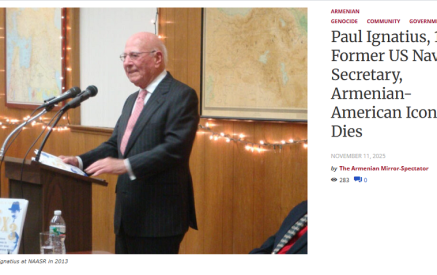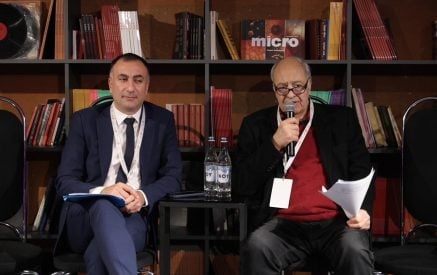Reverend Mesrop Parsamyan, Primate of the Eastern Armenian Diocese of the United States of America, answers the questions of Aravot Daily.
— 1 year ago, you had a car accident. You underwent a long process of recovery, having to learn how to walk again. How are you feeling now?
—Through the prayers of our people and through God’s blessing, I am now very well and am able to travel. As you see, I was able to come to Dallas for the Diocesan Assembly and the Annual Clergy Conference.
— Will you please present the agenda of the Diocesan Assembly and the Annual Clergy Conference? What topics will you discuss?
Read also
— We have around 50 churches and parishes in our Diocese. Those parishes elect deputies who gather once a year in one of our parishes. The Clergy Conference takes place, after which the Diocesan Assembly is held. About 150 deputies are here in Dallas for these events. First, we will report on the past year. We will then discuss future plans to strengthen our Diocese and parishes. As Primate, this is my first Clergy Conference.
I have introduced a program called Growing in Faith Together. There are 3 important words here. Faith gives meaning to our existence. We must grow and become stronger, and we must do all this together. Together we must grow stronger and continue our mission.
Consecration of St. Sarkis Armenian Church
— Baku has been keeping Artsakh under siege for almost 5 months. The daily suffering of our compatriots in Artsakh is evident. This issue seems to have been forgotten in Armenia and the Diaspora. Maybe the feeling of helplessness is to blame? What message will you send to the Armenian people regarding Artsakh?
— Artsakh is not forgotten in our Diocese. During this Conference, we received the Pontifical Blessing of His Holiness Karekin II. His Holiness The Catholicos clearly touches upon the living conditions of our brothers and sisters in Artsakh. We are carefully following the developments in Artsakh, and our Diocese always raises the Artsakh question.
We recently organized a fundraiser to help the people of Artsakh, sending several trucks of humanitarian aid. During meetings with politicians and American authorities, we highlight the Artsakh question, emphasizing the right of self-determination of the people of Artsakh. We are doing everything to support the motherland and the compatriots of our very lovely Artsakh.
—You’ve previously said you are a “hopeful realist.” What does this mean?
— Being a hopeful realist means that I take reality into account, but I also keep in my heart the abundance of God’s blessing and God’s hope. Although the reality may seem dark and difficult to some, God gives us the strength to move forward and live. I felt this especially during the days I spent in the hospital. For 6 months, I was in different hospitals and rehabilitation centers.
My legs were broken. I was realistic because I felt the pain of my injuries, but I also had an abundance of hope. I knew that God would not leave me alone. God is with me—He is with us. He is the loving Father who always takes care of us. As a result of that hope and blessing, I am here today giving you this interview.
— Unfortunately, Armenian statehood had ceased to exist for centuries. During that period, the Church played a significant role in maintaining Armenian identity. Our culture and spiritual life developed despite the absence of a state. Today, a large part of the Armenian people lives outside Armenia. In your opinion, do the Armenian churches of the Diaspora bear responsibility for the preservation of Armenian identity?
— Of course. This has been a tested, proven, and witnessed reality through the centuries. Especially in the Diaspora, Armenian identity has been preserved thanks to the efforts of the Church. A simple example is that when entering an Armenian Apostolic Church anywhere in the world, you hear Armenian—you hear Classical Armenian, which was the language spoken by our fathers—Mesrop Mashtots, Sahak the Parthian, Gregory of Narek, Nerses the Gracious. Even today, we sustain the tradition, spiritual heritage, culture and faith, passing it on to the present as well as the future generation. The role of the Armenian Church in preserving the identity and culture of Armenians is unique because the Church is where our identity was formed. If identity was formed in the Church, then the best place to maintain that identity is the Church itself, meaning within the realm of our national and spiritual values.
Holy Liturgy prior to the Clergy Conference
Interview by Arsen AIVAZIAN



















































